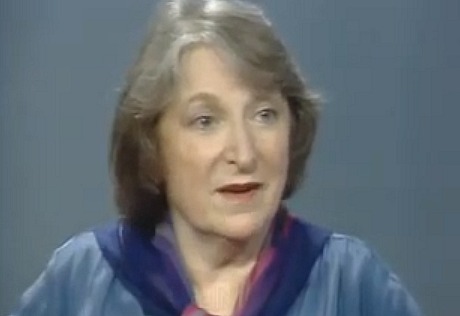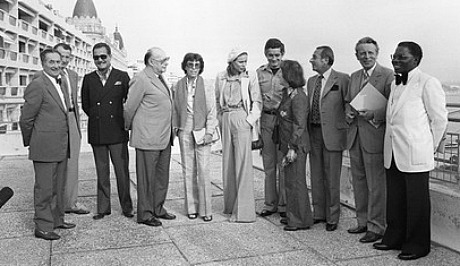Before reading Todd McCarthy‘s 10.6 review of Brian Kellow‘s “Pauline Kael: A Life in the Dark“, I’d never heard about the legendary New Yorker film critic having allegedly hastened the death of director Roberto Rossellini by inflicting stress on the poor man. During their mutual service on the 1977 Cannes Film Festival jury, McCarthy writes, Kael “argued so relentlessly with the aging and ailing Rossellini for two weeks that the uncharitable accused her of killing the revered director, who died the following week.”

New Yorker critic Pauline Kael during a 1982 interview, when she was 62 or 63.
On the other hand McCarthy recounts a passage in Kellow’s book in which Kael and director George Roy Hill, “both terribly debilitated by Parkinson’s disease, met by chance in a small-town Massachusetts restaurant. Their previous personal contact had been some 30 years earlier when the director, responding to her unkind and, in one respect, uninformed review of Butch Cassidy and the Sundance Kid, had begun with the salutation, ‘Listen, you miserable bitch.’ Ignoring this, ‘Pauline clutched his hand warmly and gave him the name of her massage therapist, promising him that the therapy would do him a world of good.'”
McCarthy also notes that Kael “was always surprised when ‘friends’ she went on to attack in print — Woody Allen, for example — took offense at her criticism, as she somehow imagined they would understand it wasn’t personal, that she had to be completely honest in her reviews.”
Hah! From the filmmakers’ point of view, a critic or columnist they personally know is their friend and supporter no matter what, a writer who will always be generous or at least cut them a break whenever possible, or they’re some kind of enemy or betrayer or backbiter if they write something even moderately critical, especially if it strikes the filmmaker as dismissive.

The 1977 Cannes Film Festival jury (i.e., Kael is the shortest, fourth from right)
